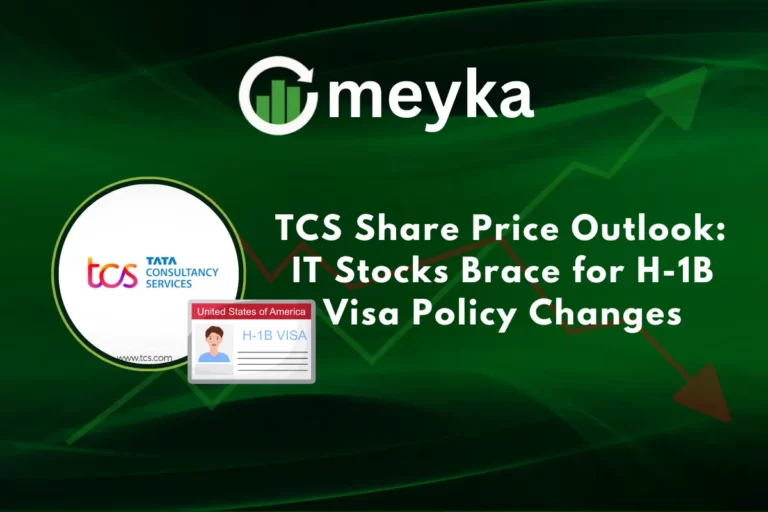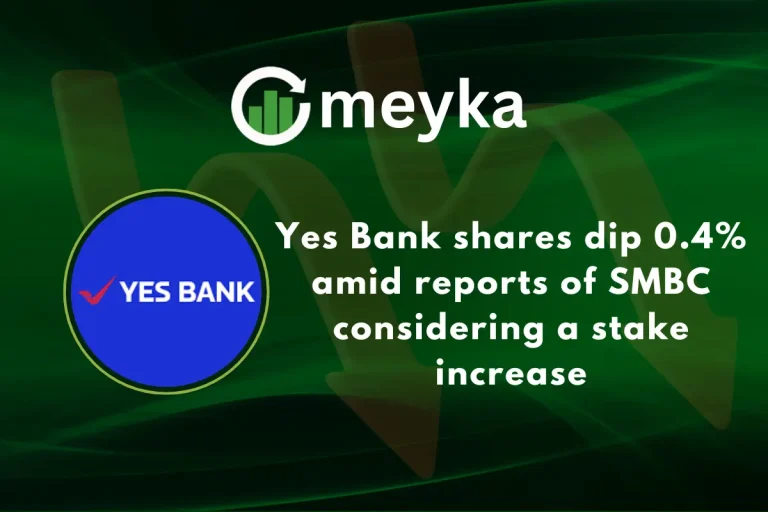After a 20% Fall, will the RBI-approved SMBC Deal Rescue Yes Bank?
Yes Bank’s share price has slipped by nearly 20% over the past twelve months. With increasing investor concerns, RBI gave the go-ahead to the SMBC Deal, whereby Sumitomo Mitsui Banking Corporation was allowed to purchase shares to the extent of 24.99 percent in Yes Bank. The approval is valid for one year and awaits final clearances from the Competition Commission of India (CCI). This deal could be a turning point. Still, we must question whether this alone can restore Yes Bank’s stability.
Yes Bank’s Recent Struggles
Over the past year, Yes Bank’s stock has declined about 18–20%, driven by weak earnings and investor doubts. Even with small rallies lately, the long-term sentiment stayed negative. Investors began wondering if new capital or fresh leadership could offer a real lifeline.
Inside the SMBC Deal
The SMBC Deal was launched in May 2025 with the Japanese bank buying a 20 percent stake in Yes Bank at a price of 1.6 billion. That included 13.19% from SBI and 6.81% from seven other banks, like HDFC, ICICI, Kotak, and others. SMBC subsequently wanted permission to increase its share to 24.99, which was given by the RBI on August 22, 2025. Under this deal, SMBC will get two seats on Yes Bank’s board, though it won’t be treated as a promoter.
RBI’s Role and Why Approval Matters
RBI approval of such a large foreign stake in a private bank is rare. This agreement marks one of the biggest foreign investments in India’s banking sector in recent years. RBI has maintained normal governance norms, noting that SMBC is not a promoter, so no additional compliance is required. The move signals RBI’s willingness to allow foreign partners when it serves financial stability and sector confidence.
Impact on Yes Bank’s Balance Sheet
With fresh capital flowing in, Yes Bank can boost its Tier-1 capital ratio, improve liquidity, and potentially support more lending. SMBC also brings global governance and risk management practices. That can help Yes Bank fix internal controls, reduce risky loans, and restore investor trust.
Market Reaction and Stock Volatility
Markets responded quickly to the SMBC Deal news. Yes Bank’s stock jumped between 4% and 5% in intraday trade right after the RBI’s approval. Analysts see short-term positivity, with price targets around ₹21–23 if momentum holds. Still, many say the stock’s long-term path depends on how well Yes Bank reforms and manages risks.
Opportunities After the SMBC Deal
We believe the SMBC Deal opens some real chances:
- Capital Strength: More capital lets the bank support business growth and manage stressed loans.
- Better Governance: SMBC brings stronger risk norms and board oversight.
- Improved Confidence: This deal may attract more investors and lenders, who believe Yes Bank is on a safer path.
Remaining Risks and Challenges
Yet, caution remains. Since SMBC is not a promoter, its role in shaping Yes Bank’s overall strategy may remain limited. Yes Bank still faces legacy challenges, like stressed assets, profitability issues, and internal controls. Execution of reforms is key. The next big hurdles include securing CCI approval and fulfilling other regulatory conditions.
What It Means for the Indian Banking Sector
This SMBC Deal could reshape how foreign banks engage with Indian lenders. It signals RBI’s openness to foreign capital, as long as safeguards hold. This may pave the way for similar investments in mid-sized banks, boosting capital flows and best practices across the sector.
Conclusion
With the SMBC Deal, Yes Bank gains stronger capital and welcomes a trusted international partner to its board. It may mark the start of a turnaround. But we must be honest, deals alone don’t fix deep issues. Yes Bank still needs strong reforms, better governance, and improved profitability to stand on its own. If we watch closely and the bank follows through, this deal might be exactly the lifeline it needed.
FAQS:
RBI sometimes restricts banks like PMC Bank in the past, due to fraud and poor finances. Such restrictions protect depositors and give time for recovery.
Yes Bank is authorized and strictly regulated by the RBI for its operations. In 2025, the RBI approved the SMBC Deal, permitting a major foreign bank to acquire as much as 24.99% stake.
SMBC stands for Sumitomo Mitsui Banking Corporation. It is one of Japan’s largest banks. SMBC is known for global banking services and has invested in India’s Yes Bank.
Disclaimer:
This content is for informational purposes only and is not financial advice. Always conduct your research.






